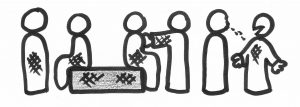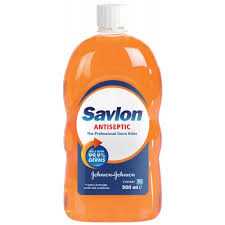SCI 02 – DISCHARGES & TRANSMISSION
Leviticus 15 Discharges from the human body
- Discharge: anything leaving the body (stool, urine, blood, semen, spit, sweat, tears, nasal discharge, wound discharge …)
- Le 15:2-12 men discharge due to illness
- Le 15:16-18 men normal discharge (semen)
- Le 15:19-24 women normal discharge (menstruation)
- Le 15:25-30 women discharge due to illness
- Distinction of clean and unclean
How does one become unclean? Clean > unclean
- What all is unclean?
- Person with discharge
- Anything or anyone he touches
- Anything or anyone that touches something he touched
- Uncleanness spreads by contact or touch
- Unclean is:
- Stool, Urine, Blood, Semen, Spit Le 15
- Human corpse, bones, graves Nu 19:16, Nu 31:19
- Skin rash, lesions, wounds Le 13
- Mildew (fungus) Le 14
- Spoils of War Nu 31:19-20
- anything, anyone touching any of these things mentioned

How does one become clean again? Unclean > clean
- What is mentioned about an unclean thing get clean again?
- by washing (clothes, wooden vessel)
- by throwing away (clay vessels)
- by burning (metals)
- So basically: Unclean > clean
- by separation
- by washing, showering, rinsing
- by waiting till evening
The meaning of "unclean"
- Why all this? What does “unclean” mean? Bad? Sinful? Immoral? Unholy?
- Is it sinful to change a baby’s diaper?
- Is it unholy to clean toilets?
- Is it sinful to have sex?
- Is it bad for women to have their period?
- Is it immoral to care for an ill person?
- Is it sinful to give a dead person a last washing? … No.
- What then does “unclean” mean? … just that: ‘not clean’ , “maybe germs present”, “possibly contaminated”

Practical implications?
- Maybe? Possibly? Not visible by eye, therefore we are not sure. Testing was long impossible. Even now expensive and cumbersome.
- Therefore: if in doubt: assume germs are present
- Germs are often present in human discharges, in normal discharges and especially discharges due to illness.
- Dead people are unclean, for what did they die of? Decomposing flesh is unclean.
- Germs spread mostly through direct contact, though they spread in other ways as well (droplet infection, mosquitoes, flies, bugs, bigger animals …)
- How to make unclean clean again?
- Separating … to cut further germ transmission
- Washing, showering, rinsing … to kill & remove germs
- Waiting … to kill germs
- Most germs die by themselves within hours of leaving the body
Modern day situation
- We have soap to kill & remove germs
- Antiseptics cut transmission. Example: Lifebuoy soap, Dettol, Savlon, Hexisol
- Antibiotics kill germs in the body
- Today we have modern shortcuts / fast solutions but the principle remains: kill & remove germs
- And: prevention is better than cure. For a long time there was only prevention.
- Example: Doctor, touching patient after patient > disinfecting hands
- Example: Caring for a baby > washing hands with soap before preparing food
- Example: Last washing of a dead. Of course, but careful with own hygiene



Application
- Modern application: I have diarrhea. What must I do?
- Principle: make sure I do not damage others or put them at risk
- Principle: responsibility of the patient, nobody else knows, nobody else can practically do it.
- Principle: Prevention > cure. Before there simply was not treatment.
- How does this same principle sound in New Testament language?
- Mark 12:31 “Love your neighbor”
- Philippians 2:3 “Prefer one another”
- Romans 14:19-20 “See to it that your freedom does not hurt another believer”
New Testament thoughts
- What then of Jesus clashing with the Pharisees over Law Scriptures?
- Most of the conflict is not over the Law of Moses but over added human traditions
- Jesus criticizes: False security in blind, outward obedience to law but no understanding or the law
- Jesus criticizes: “Unclean” had become “cast out” or “untouchable”, for example in the case of lepers.
- Lepers were completely ostracized from society, but that is not what the law demands. Lepers are indeed unclean according to the law, but that doesn’t mean I can’t touch them. But after touching them I have to follow the ‘unclean > clean’ procedure.
The heart behind the clean / unclean laws
- What effect would the clean / unclean laws have had for Israel?
- What message would this have sent to surrounding nations?
- What is God’s heart for his people? For all people?
- De 7:15 “The LORD will turn away from you every illness; all the dread diseases of Egypt that you experienced, he will not inflict on you”
- De 4:6-8 “You must observe them (the statutes) diligently, for this will show your wisdom and discernment to the peoples, who, when they hear all theses statutes, will say, “Surely this great nation is a wise and discerning people!” 7 For what other great nation has a god so near to it as the LORD our God is whenever we call to him? 8 And what other nation has statutes and ordinances as just as this entire law that I am setting before you today?”

A current example
- Example: You are on a Padma River island after a cyclone. All road communications are cut off.
- No medicines or antiseptic is available. One family has cholera.
- What do you do?
- follow Leviticus 15 strictly! No other recourse if you want to prevent a big scale outbreak.